
Urgench: The Gateway to Ancient Wonders
Urgench, located in the heart of Uzbekistan, is a city rich in history and culture. This vibrant city serves as the perfect starting point for exploring the ancient Silk Road and the nearby historical marvels. With its close proximity to the UNESCO World Heritage Site of Khiva, Urgench offers a unique blend of modernity and tradition. Wander through the city's bustling bazaars, where you can find local crafts, spices, and textiles that reflect the region's heritage. Take a stroll along the Amu Darya River, which flows gently through the city, offering picturesque views and a serene atmosphere. Urgench is also known for its warm and welcoming locals, who are eager to share their traditions and stories. Whether you are interested in history, culture, or simply enjoying the local cuisine, Urgench provides a memorable experience for all travelers.
Local tips in Urgench
- Visit the nearby city of Khiva, only 30 minutes away, for a deeper dive into the region's history.
- Explore the local bazaars early in the morning when they are most lively and vibrant.
- Try the local dish 'plov', a traditional rice dish that is a staple in Uzbek cuisine.
- Hire a local guide to learn more about the rich history and culture of the area.
- Stay hydrated and wear sun protection, especially during the summer months.
Urgench: The Gateway to Ancient Wonders
Urgench, located in the heart of Uzbekistan, is a city rich in history and culture. This vibrant city serves as the perfect starting point for exploring the ancient Silk Road and the nearby historical marvels. With its close proximity to the UNESCO World Heritage Site of Khiva, Urgench offers a unique blend of modernity and tradition. Wander through the city's bustling bazaars, where you can find local crafts, spices, and textiles that reflect the region's heritage. Take a stroll along the Amu Darya River, which flows gently through the city, offering picturesque views and a serene atmosphere. Urgench is also known for its warm and welcoming locals, who are eager to share their traditions and stories. Whether you are interested in history, culture, or simply enjoying the local cuisine, Urgench provides a memorable experience for all travelers.
When is the best time to go to Urgench?
Iconic landmarks you can’t miss
Urgench International Airport
Discover the essence of Central Asia at Urgench International Airport, your gateway to exploring Uzbekistan's rich heritage and landscapes.
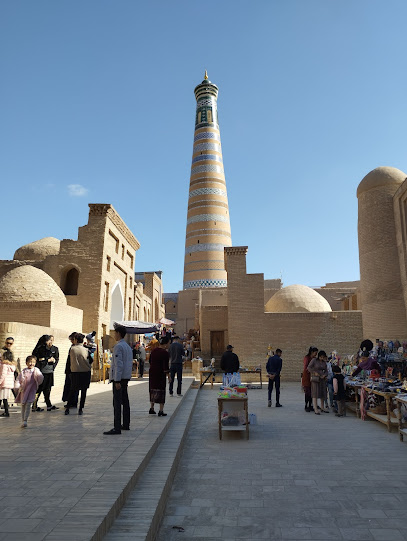
Khorezm Palace
Experience the perfect blend of comfort, culture, and hospitality at Khorezm Palace in Urgench, Uzbekistan, your gateway to the rich heritage of the Xorazm Region.

Urgench Railway Station
Discover Urgench Railway Station, a cultural hub connecting you to the historic wonders of the Xorazm Region in Uzbekistan.
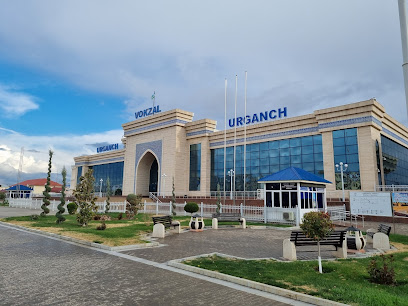
Памятник Авесто
Explore the serene beauty and cultural significance of Pamyatnik Avesta in Urgench, a must-visit park celebrating Uzbekistan's ancient heritage.
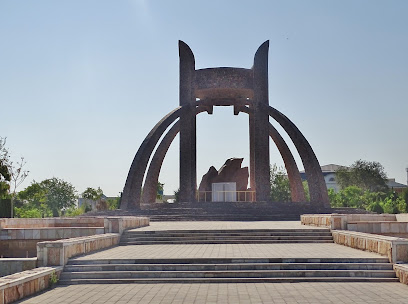
Amir Temur Istrohat Bog'i
Experience the thrill of Amir Temur Istrohat Bog'i in Urgench, a perfect blend of amusement and cultural heritage for all ages.
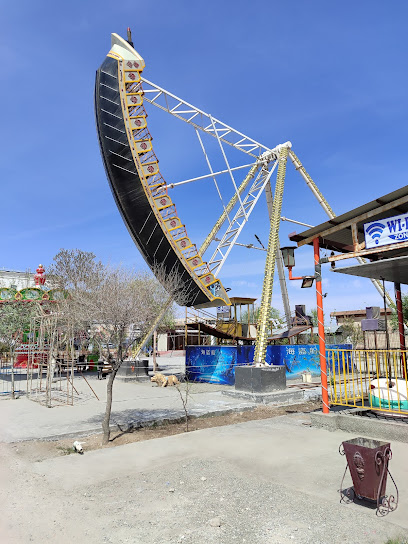
Мемориальный комплекс Ал-Хорезми
Discover the legacy of algebra at the Al-Khrezm Memorial Complex, a serene park in Uzbekistan honoring the father of mathematics amidst beautiful gardens.
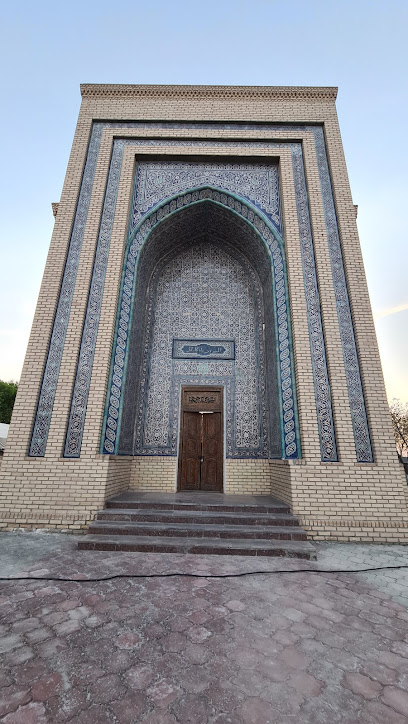
Sherg'ozixon Madrasasi
Discover the architectural beauty and rich history of Sherg'ozixon Madrasasi, a must-visit historical museum in Khiva, Uzbekistan.
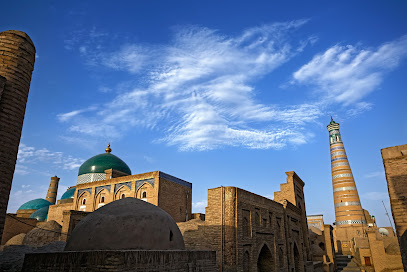
Мемориальный комплекс Ал Беруний
Explore the serene Al Beruni Memorial Complex in Uzbekistan, a lush park dedicated to the famous scholar with rich history and stunning landscapes.
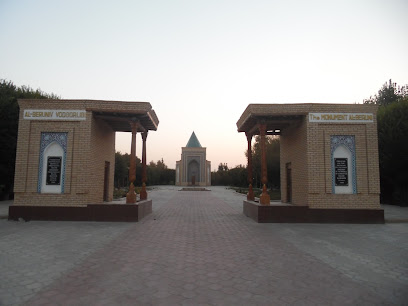
Temur Gamburg
Discover the authentic taste of Uzbekistan at Temur Gamburg in Urgench, where rich flavors and warm hospitality await every traveler.
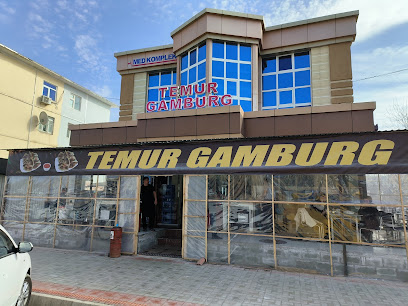
Eski hamom
Discover the authentic sauna experience at Eski Hamom in Urgench, Uzbekistan, where relaxation meets rich cultural traditions.
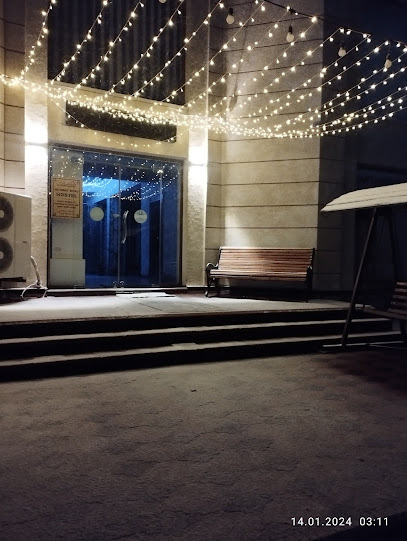
Abulgʻozi Bahodirxon haykali
Discover the rich heritage of Uzbekistan at the Abulg'ozi Bahodirxon Haykali, a landmark steeped in history and culture in vibrant Urgench.
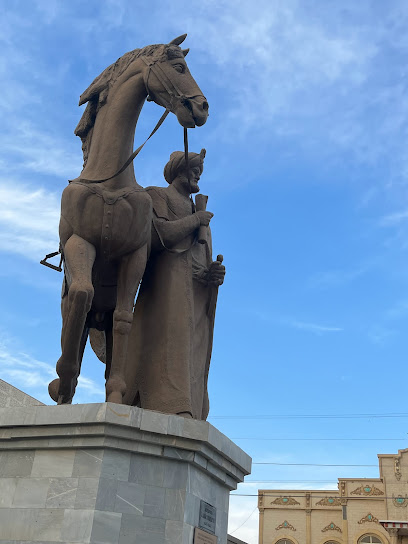
Do'rman krug
Explore the breathtaking hiking trails at Do'rman Krug, a hidden gem in Uzbekistan's Xorazm Region offering stunning landscapes and nature’s tranquility.
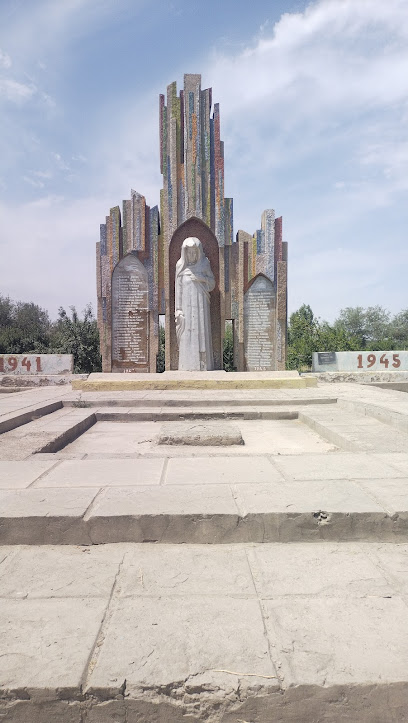
Uzbekistan
Explore the rich history, stunning architecture, and vibrant culture of Uzbekistan, a hidden gem in Central Asia with breathtaking landscapes and warm hospitality.
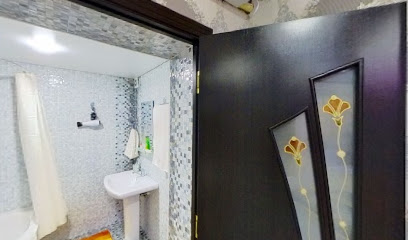
Uzbekistan Urgench
Explore the rich history and vibrant culture of Urgench, a unique destination in Uzbekistan's Xorazm Region.
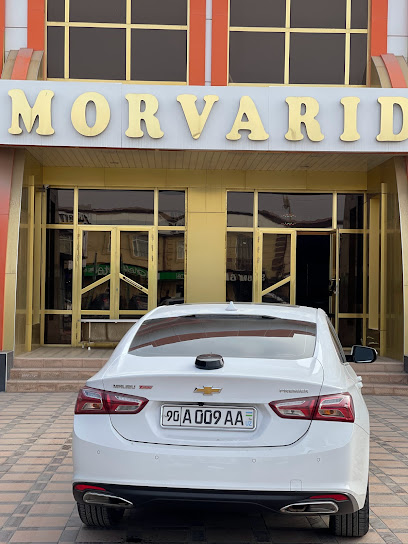
Qabriston / Cemetery
Discover the tranquil beauty of Qabriston Cemetery, a historical gem in Urgench, reflecting Uzbekistan's rich cultural heritage.

Unmissable attractions to see
Itchan Kala
Discover the enchanting Itchan Kala, a UNESCO World Heritage Site, where history, culture, and stunning architecture blend seamlessly in Khiva, Uzbekistan.

Juma Mosque
Explore the serene beauty and rich history of the Juma Mosque in Khiva, a stunning example of Uzbekistan's architectural heritage.
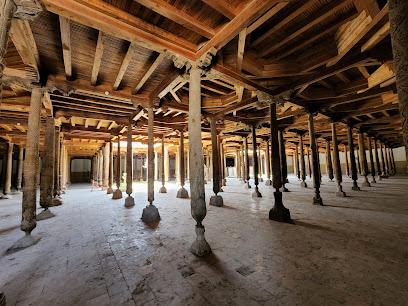
Pahlavan Mahmoud Mausoleum
Discover the architectural beauty and historical significance of the Pahlavan Mahmoud Mausoleum in Khiva, a treasure of Uzbekistan's heritage.
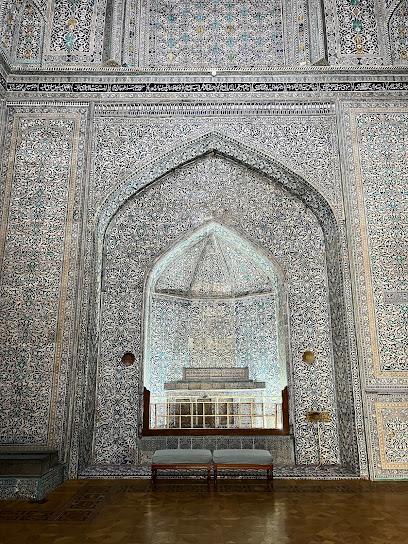
Bakcha Darvaza
Discover the stunning Bakcha Darvaza, a historical landmark in Khiva that offers breathtaking views and a glimpse into Uzbekistan's rich cultural heritage.
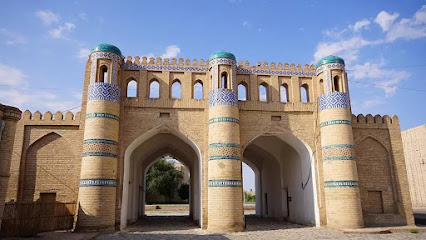
Mohammed Amin Khan Madrassah
Explore the architectural beauty and historical significance of Mohammed Amin Khan Madrassah, a treasure in Khiva's ancient landscape.
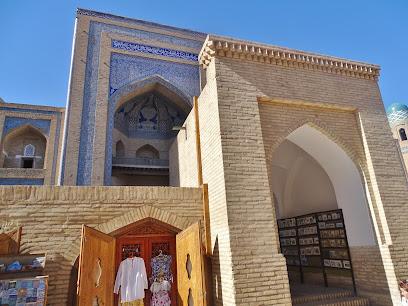
Памятник Авесто
Explore the Avesta Monument in Urgench, Uzbekistan - a cultural gem within a tranquil park, celebrating rich heritage and artistic beauty.
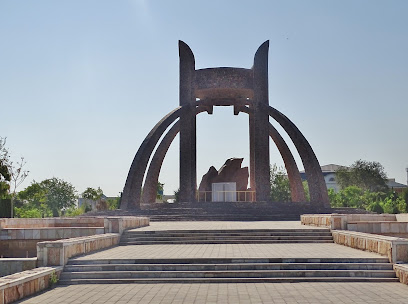
Мемориальный комплекс Ал-Хорезми
Explore the serene Al-Khorizm Memorial Complex, a tribute to the father of algebra, nestled in the heart of Urgench, Uzbekistan.
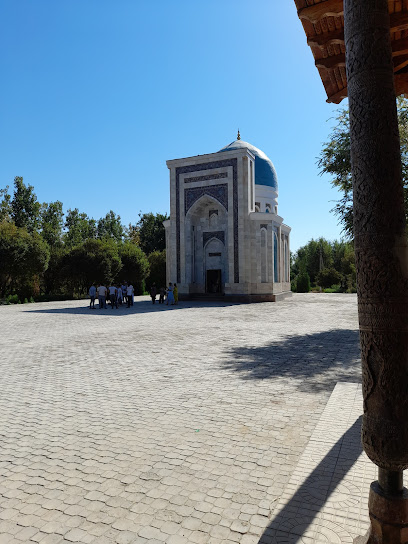
Jummi Minaret
Uncover the beauty and history of the Jummi Minaret, a stunning architectural masterpiece in Khiva, Uzbekistan, and a testament to Islamic artistry.
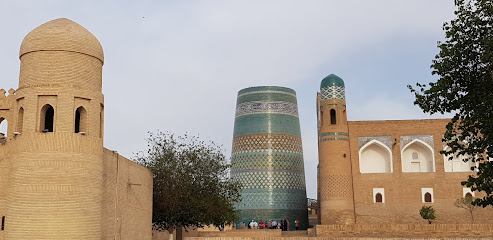
Мемориальный комплекс Ал Беруний
Explore the serene Al Beruni Memorial Complex in Uzbekistan's Xorazm Region, a tribute to the great scholar and a haven of tranquility for all visitors.
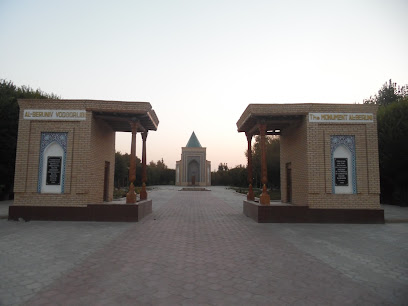
Essential places to dine
BELISSIMO
Experience the rich flavors of Uzbekistan at Belissimo in Urgench – where tradition meets modern cuisine.
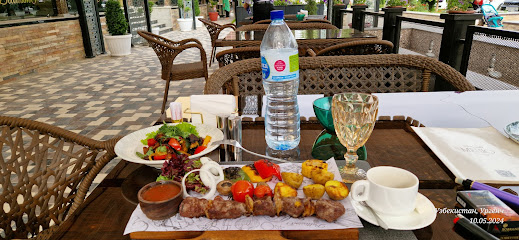
FAVVORA oilaviy restorani
Discover FAVVORA oilaviy restorani in Urgench – where family-friendly dining meets delicious Uzbek flavors.
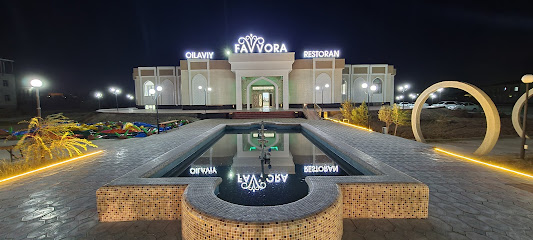
Ummon Restaurant
Experience authentic Uzbek cuisine at Ummon Restaurant in Urgench – where tradition meets flavor.
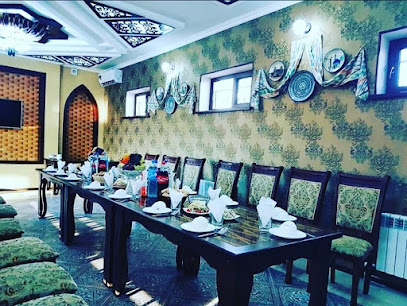
Urgench Restaurant
Experience authentic Uzbek cuisine at Urgench Restaurant, where traditional flavors meet modern dining in a welcoming atmosphere.
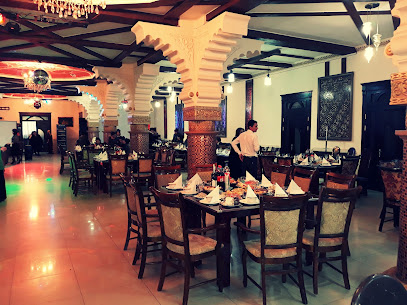
OLIMP GARDEN RESTAURANT
Experience the authentic taste of Uzbekistan at Olimp Garden Restaurant in Urgench - where every dish tells a story.
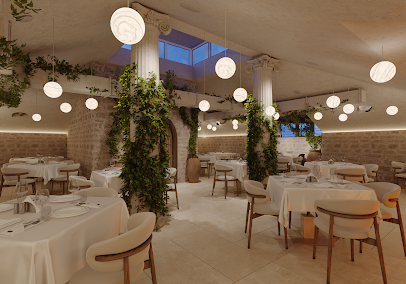
Saroy milliy taomlari
Experience the essence of Uzbek cuisine at Saroy Milliy Taomlari in Urgench – where tradition meets flavor.
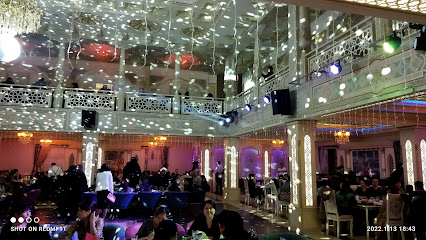
Milliy Ipak Yo'li Taomlari
Experience authentic Uzbek flavors at Milliy Ipak Yo'li Taomlari in Urgench – where tradition meets taste!
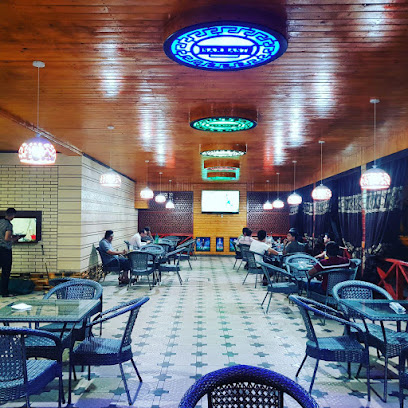
IBODULLA OTA to'yxonasi
Experience authentic Uzbek flavors at IBODULLA OTA to'yxonasi in Urgench - where tradition meets taste in every dish.
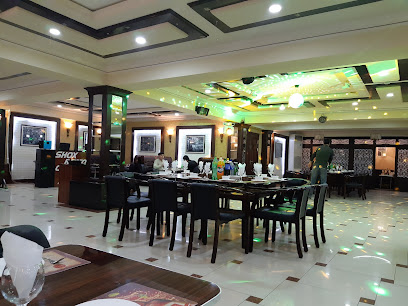
Bar N'yu-York
Experience the essence of Uzbek cuisine at Bar N'yu-York in Urgench - where every meal is a celebration of flavor and culture.
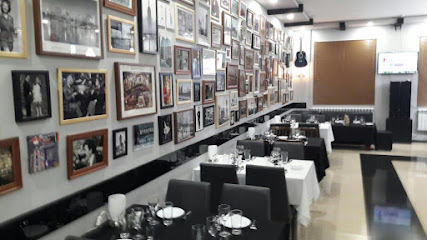
Mir Restoran
Discover the flavors of Uzbekistan at Mir Restoran – a family-friendly dining destination in Urgench offering delicious cuisine in a welcoming setting.
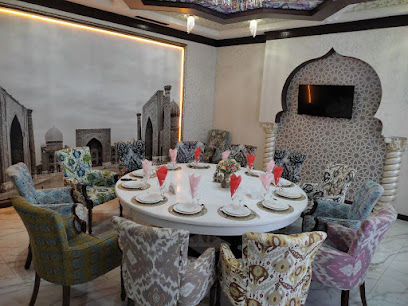
Restoran Ipak yo'li Urganch
Experience authentic Uzbek cuisine at Restoran Ipak yo'li Urganch - a culinary delight nestled in the heart of Xorazm Region.
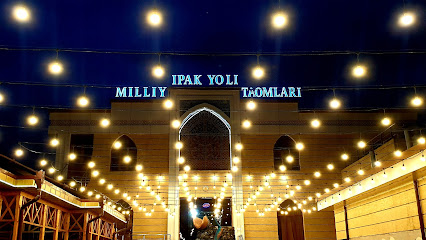
Humo to'yxonasi
Discover authentic Uzbek cuisine at Humo to'yxonasi in Urgench - where tradition meets taste.
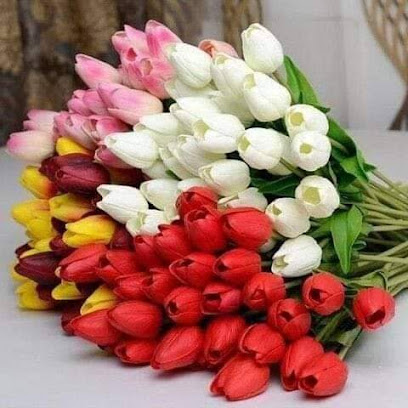
Bog'i Eram
Discover authentic Uzbek flavors at Bog'i Eram in Urgench - a culinary haven for food lovers.

Giotto Urgench
Discover authentic Uzbek cuisine at Giotto Urgench - a delightful blend of tradition and modernity in every bite.
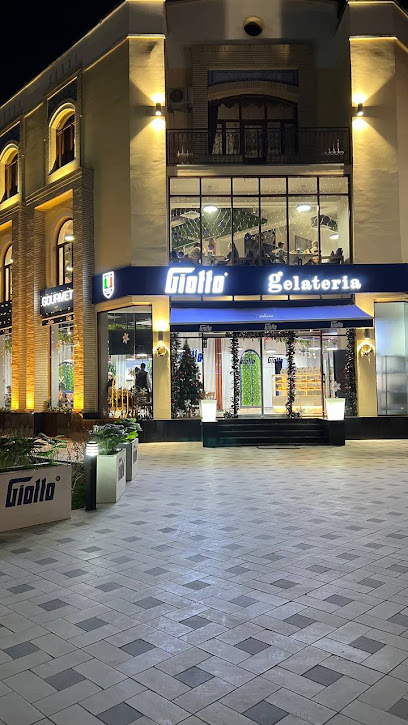
GOSSI restaurant
Experience authentic Uzbek flavors at GOSSI Restaurant in Urgench, where tradition meets taste in every dish.
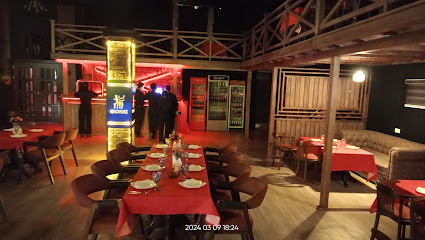
Markets, malls and hidden boutiques
Urganch Karvon Shopping Centre
Shop, dine, and explore local culture at Urganch Karvon Shopping Centre, a vibrant destination in Uzbekistan's Xorazm Region.
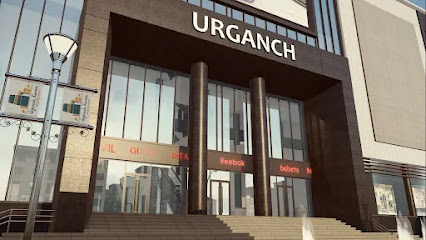
Turkezm
Discover the vibrant styles of Turkezm in Urgench, where fashion meets tradition in a boutique shopping experience for all ages.
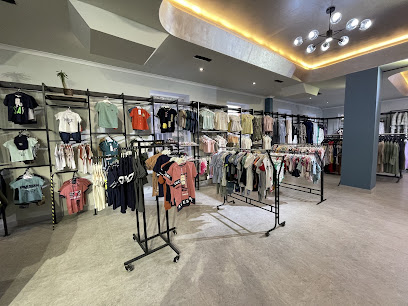
NAZAR OTA
Explore Nazar OTA in Urgench for a unique shopping experience filled with local crafts and cultural treasures from Uzbekistan.
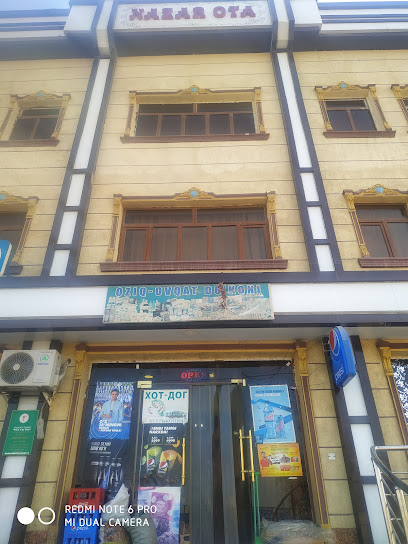
Xòjalik Mollari
Explore the vibrant world of Xòjalik Mollari, where authentic Uzbek crafts and local artistry come together in a unique shopping experience.
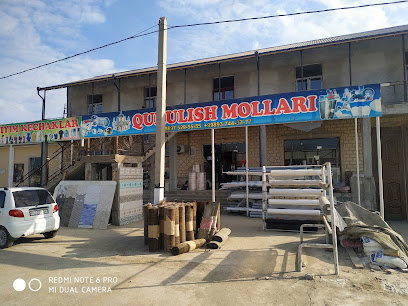
Xòshiroy Market
Experience the vibrant culture and flavors of Uzbekistan at Xòshiroy Market in Urgench, a must-visit destination for every traveler.
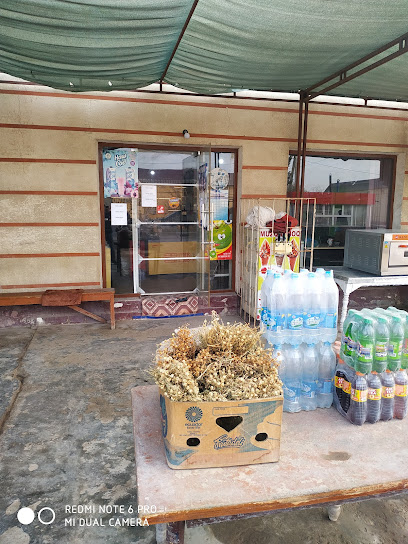
Feruza 777
Explore Feruza 777 in Urgench, Uzbekistan, for unique souvenirs and gifts that embody the spirit of local culture and craftsmanship.
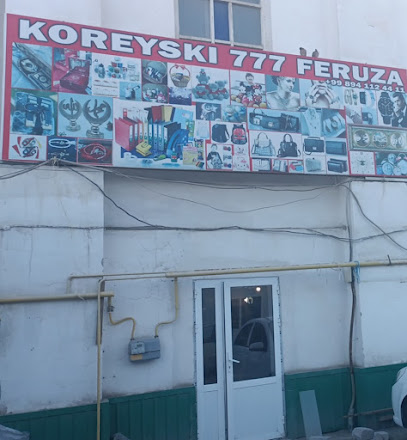
Gold Market
Discover the Gold Market in Urgench, a vibrant hub of Uzbek craftsmanship and rich cultural heritage, offering stunning handcrafted gold jewelry.
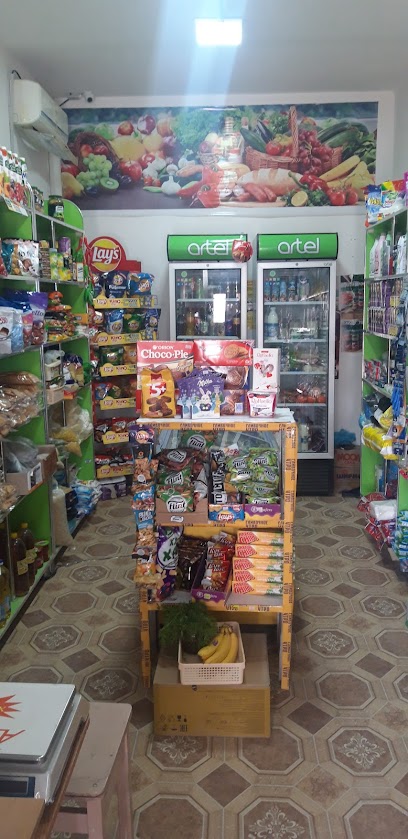
NIHOL MARKET
Experience the vibrant culture and local flavors of Uzbekistan at NIHOL MARKET, the heart of Urgench's shopping scene.

Ov Kurollari
Discover unique Uzbek handicrafts and local treasures at Ov Kurollari in Urgench, a must-visit shopping destination for tourists.

Urgench Jamhurbek market
Explore Urgench Jamhurbek Market, a vibrant hub of culture, fresh produce, and unique crafts in the heart of Uzbekistan's Xorazm region.

AFRUZ market
Experience the local culture and vibrant commerce at AFRUZ Market in Urgench, a must-visit destination in Uzbekistan.
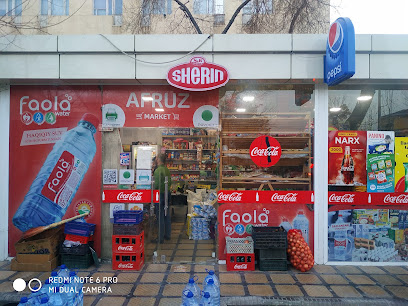
Elite Store Uzbekistan
Explore Elite Store Uzbekistan in Urgench for a blend of contemporary fashion and traditional Uzbek styles, perfect for every traveler.

Adsense
Experience the vibrant shopping culture of Urgench with a mix of local crafts, modern brands, and delicious dining options in a lively atmosphere.

Bukkhara
Explore Bukkhara in Uzbekistan's Xorazm Region for authentic crafts, unique souvenirs, and a taste of local culture.

Unversal magazin Baxtiyor og‘a
Discover the vibrant culture of Uzbekistan at Universal Magazin Baxtiyor og‘a, a local store in Urgench offering unique crafts and essentials.

Essential bars & hidden hideouts
Milliy Ipak Yo'li Taomlari
Discover the authentic taste of Uzbekistan at Milliy Ipak Yo'li Taomlari in Urgench, where every dish tells a story of heritage and flavor.
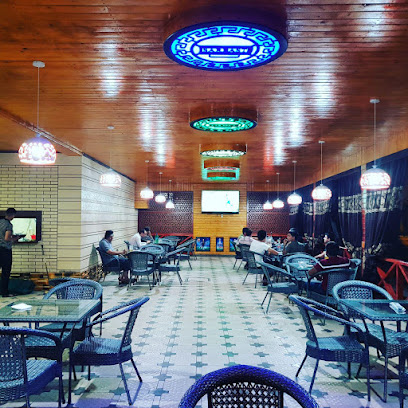
Bar N'yu-York
Discover the heart of Uzbekistan's cuisine at Bar N'yu-York, a cozy restaurant in Urgench serving authentic local flavors.
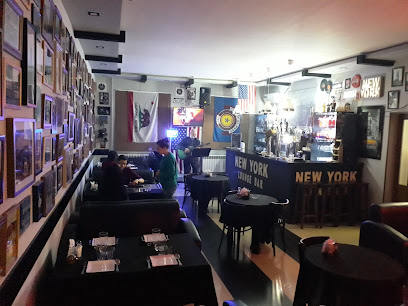
Chill_room_lounge_bar
Discover the vibrant Chill Room Lounge Bar in Urgench, where relaxation meets entertainment in an inviting atmosphere.
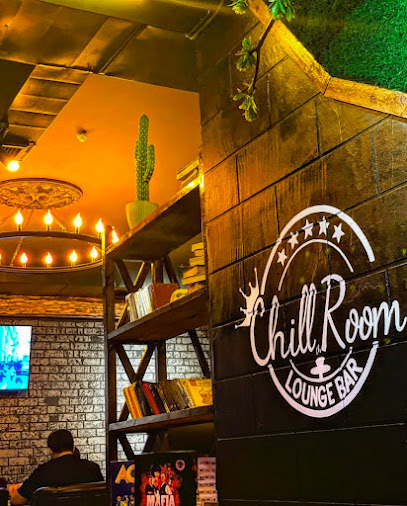
Deep.Lounge.Urg
Explore the vibrant nightlife at Deep Lounge Urgench, where local culture and modern comfort meet in a lively bar atmosphere.
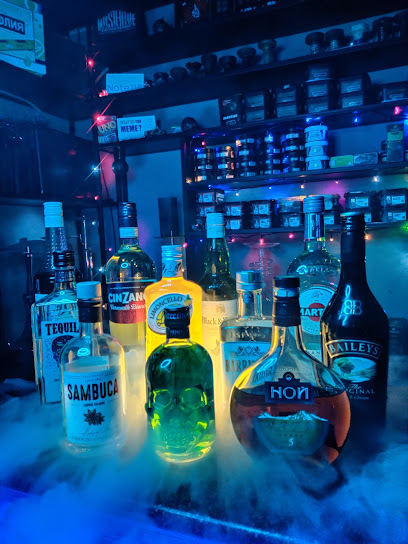
REJJI_CHISH
Explore the spirited nightlife of Urgench at REJJI_CHISH, a cocktail bar renowned for its creative drinks and vibrant atmosphere.
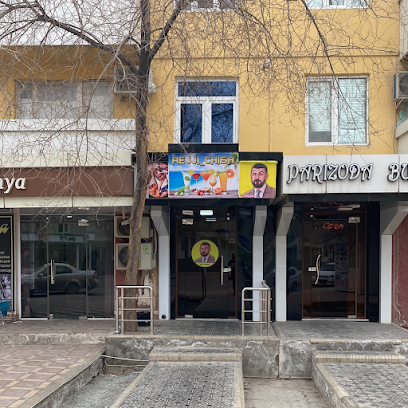
BEK kafe
Experience the vibrant culture of Uzbekistan at BEK Kafe, a lively bar in Urgench offering local drinks and a warm atmosphere.
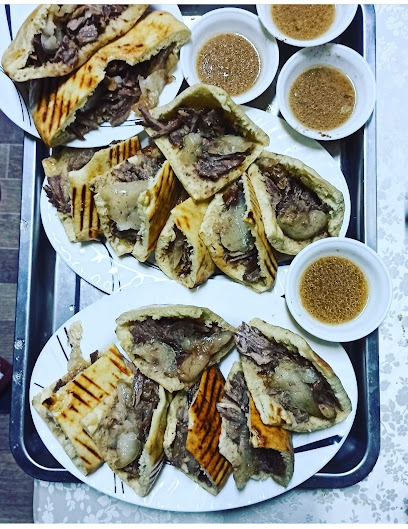
Club Don
Experience the vibrant nightlife at Club Don, a lively bar in Urgench, Uzbekistan, perfect for socializing and enjoying local drinks.

Atmosfera Lounge Bar
Discover the perfect blend of relaxation and culture at Atmosfera Lounge Bar in Urgench, where every drink tells a story.
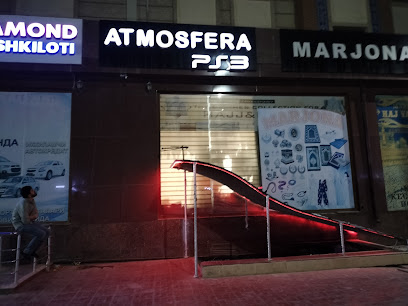
The Simpsons
Experience the vibrant nightlife of Urgench at The Simpsons, a bar offering a delightful mix of local and international drinks in a welcoming atmosphere.
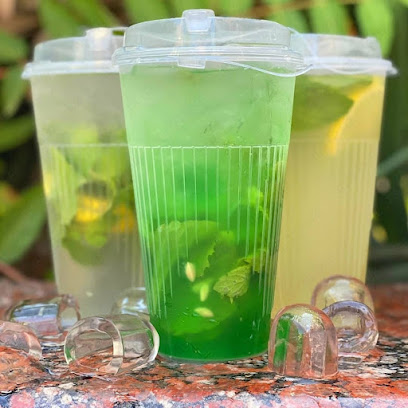
Shashlik_house
Discover the authentic flavors of Uzbekistan at Shashlik House, the perfect blend of traditional cuisine and a vibrant bar atmosphere.
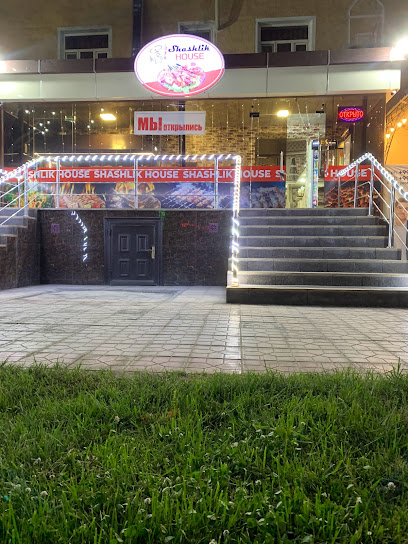
Terassa
Discover the vibrant nightlife at Terassa, a lively bar in Urgench, Uzbekistan, where local culture meets modern relaxation.

CRAFT_BEER_URGENCH
Experience the rich flavors of local craft beer at Craft Beer Urgench, a must-visit bar in the heart of Uzbekistan's Xorazm Region.
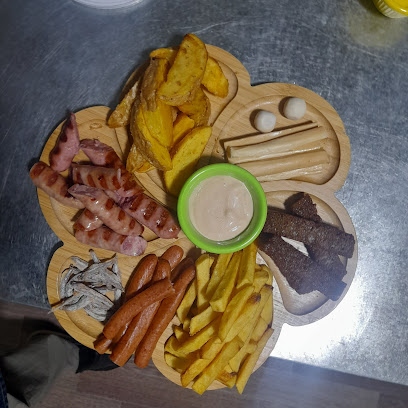
Fayz
Experience the vibrant nightlife at Fayz, a cozy bar in Urgench, Uzbekistan, perfect for unwinding with local drinks and friendly faces.

Kafenaz cafe
Experience the cozy charm of Kafenaz Cafe in Urgench, Uzbekistan, a perfect spot for relaxation and delightful refreshments.
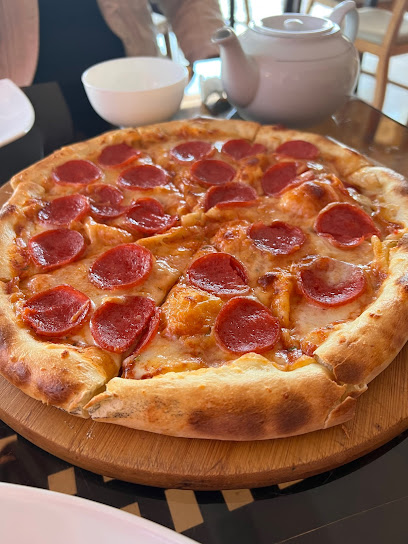
Local Phrases
-
- HelloSalom
[sah-lom] - GoodbyeXayr
[khayr] - YesHa
[hah] - NoYo'q
[yoq] - Please/You're welcomeIltimos
[eel-tee-mos] - Thank youRahmat
[rah-maht] - Excuse me/SorryKechirasiz
[keh-chee-rah-siz] - How are you?Nima yangiliklar?
[nee-mah yahng-ee-lik-lahr] - Fine. And you?Yaxshi. Sizcha?
[yahk-shee. seez-chah] - Do you speak English?Siz inglizcha gapirasizmi?
[seez een-gleez-chah gah-pee-rah-siz-mee] - I don't understandTushunmadim
[toosh-oon-mah-deem]
- HelloSalom
-
- I'd like to see the menu, pleaseMenyuni ko'rishni istarman
[mehn-yoo-nee koh-reesh-nee ees-tar-mahn] - I don't eat meatGo'sht yemayman
[gohsht yeh-mahy-mahn] - Cheers!Salomatliklar!
[sah-loh-maht-leek-lahr] - I would like to pay, pleaseTo'lashni istarman
[toh-lahsh-nee ees-tar-mahn]
- I'd like to see the menu, pleaseMenyuni ko'rishni istarman
-
- Help!Yordam!
[yohr-dahm] - Go away!Yur!
[yoohr] - Call the Police!Politsiyani chaqiring!
[poh-lee-tsee-yah-nee chah-keer-eeng] - Call a doctor!Duktur chaqiring!
[dook-toor chah-keer-eeng] - I'm lostYo'l yo'q
[yohl yoq] - I'm illKasalman
[kah-sahl-mahn]
- Help!Yordam!
-
- I'd like to buy...Sotib olishni istarman
[soh-teeb oh-lish-nee ees-tar-mahn] - I'm just lookingFaqat ko'z qarashni qilaman
[fah-kaht kohz kah-rahsh-nee kee-lah-mahn] - How much is it?Qancha?
[kahn-chah] - That's too expensiveBu juda qimmat
[boo joo-dah keem-maht] - Can you lower the price?Narxni pastga tushirsangiz bo'ladi
[nahrkh-nee pahst-gah too-sheer-sahn-geez boh-lah-dee]
- I'd like to buy...Sotib olishni istarman
-
- What time is it?Soat necha?
[soh-aht neh-chah] - It's one o'clockBir soat
[beer soh-aht] - Half past (10)O'ng yarim
[oh-ng yah-reem] - MorningErtalab
[ehr-tah-lahb] - AfternoonKunduzi
[koon-doo-zee] - EveningKechasi
[keh-chah-see] - YesterdayKecha
[keh-chah] - TodayBugun
[boo-goon] - TomorrowErtaga
[ehr-tah-gah] - 1Bir
[beer] - 2Ikki
[eek-kee] - 3Uch
[ooch] - 4To'rt
[tohrt] - 5Besh
[behsh] - 6Olti
[ohl-tee] - 7Yetti
[yeh-tee] - 8Sakkiz
[sahk-keez] - 9To'qqiz
[toh-qqeez] - 10O'n
[ohn]
- What time is it?Soat necha?
-
- Where's a/the...?...qayerda?
[...kah-yehr-dah] - What's the address?Manzil qayer?
[mahn-zeel kah-yehr] - Can you show me (on the map)?Menga ko'rsatingsizmi?
[men-gah kohr-saht-eeng-siz-mi] - When's the next (bus)?Keyingi (avtobus) qachon?
[keh-yin-gee (ahv-toh-boos) kah-chohn] - A ticket (to ....)Bir chipta (....ga)
[beer cheep-tah ....-gah]
- Where's a/the...?...qayerda?
History of Urgench
-
Urgench is one of the oldest cities in Central Asia, with its origins tracing back to the ancient region of Khwarezm. It is mentioned in historical texts dating as far back as the 6th century BC, during the Achaemenid Empire. The city's early prosperity was due to its strategic location along the Amu Darya River, which facilitated trade and agriculture.
-
Urgench flourished as the capital of the Khwarezmian Empire in the 11th and 12th centuries. Under the rule of Shah Ala ad-Din Tekish and his successors, the city became a hub of culture, science, and commerce. Scholars and traders from around the world flocked to Urgench, contributing to its wealth and intellectual prominence.
-
In 1221, the city faced devastation at the hands of Genghis Khan and his Mongol army. The siege of Urgench is one of the most brutal events in the city's history. Despite fierce resistance, the Mongols destroyed much of the city and its population. This marked the end of Urgench's golden era and led to a period of decline.
-
In the 14th century, Urgench experienced a revival under the Timurid Empire. Amir Timur (Tamerlane) and his successors invested in rebuilding the city, restoring its status as a significant cultural and economic center in the region. Notable architectural projects from this period include the construction of grand mosques, madrasas, and mausoleums.
-
Urgench came under Russian control in the late 19th century and subsequently became part of the Soviet Union in the 20th century. During this period, the city saw modernization efforts including the construction of new infrastructure, educational institutions, and industrial facilities. However, many of its historical sites faced neglect and deterioration.
-
Following Uzbekistan's independence in 1991, efforts to preserve and restore Urgench's historical heritage intensified. The city has since embraced a new chapter, balancing modernization with the preservation of its rich cultural and historical legacy. Today, Urgench serves as a gateway to the ancient city of Khiva, a UNESCO World Heritage site, attracting tourists and historians alike.
Urgench Essentials
-
Urgench is accessible primarily via Urgench International Airport (UGC), which is located approximately 5 kilometers from the city center. The airport receives flights from major cities in Uzbekistan and some international destinations. Alternatively, you can reach Urgench by train from Tashkent, Bukhara, or Samarkand. The train journey provides a scenic view of the Uzbek landscape. Buses and shared taxis are also available for those traveling from nearby cities.
-
Within Urgench, you can use taxis, which are readily available and relatively inexpensive. Public buses and minibuses (marshrutkas) operate regularly and can take you to various parts of the city and nearby areas. For a more authentic experience, consider renting a bicycle to explore the city at your own pace. Car rentals are also available for those who prefer to drive.
-
The official currency in Uzbekistan is the Uzbekistani Som (UZS). Credit cards are accepted in some hotels, restaurants, and shops, but it is advisable to carry cash, especially in smaller establishments. ATMs are available in Urgench, but it is wise to withdraw sufficient cash in major cities before traveling to ensure you have enough funds. Currency exchange services are available at the airport and in some banks.
-
Urgench is generally a safe destination for tourists. However, like any travel destination, it is advisable to take standard precautions. Avoid walking alone at night in unfamiliar areas and keep an eye on your belongings in crowded places. While Urgench does not have specific high-crime areas targeting tourists, it is always best to stay vigilant and aware of your surroundings.
-
In case of emergency, dial 103 for medical emergencies and 102 for police assistance. The local police station and medical facilities are available in Urgench. It is recommended to have travel insurance that covers medical emergencies. For minor health issues, there are pharmacies in the city where you can purchase over-the-counter medications.
-
Fashion: Do dress modestly, especially when visiting religious sites. Avoid wearing revealing clothing. Religion: Do respect local customs and traditions. Always cover your head when entering mosques. Public Transport: Do be respectful and give up your seat to elderly passengers. Don’t eat or drink on public transport. Greetings: Do greet people with a handshake. A slight bow of the head is also a sign of respect. Eating & Drinking: Do try local delicacies and accept food offerings graciously. Don't refuse hospitality, as it is considered impolite.
-
To experience Urgench like a local, visit the local bazaars where you can buy fresh produce and traditional Uzbek goods. Engage with locals, as they are often friendly and willing to share stories about the city's history and culture. Don't miss visiting the historic sites in nearby Khiva, such as the Itchan Kala, which is a UNESCO World Heritage Site. For a unique experience, take a boat ride on the Amu Darya River.
Trending Landmark in Urgench
-
Urgench International Airport
-
Khorezm Palace
-
Urgench Railway Station
-
Памятник Авесто
-
Amir Temur Istrohat Bog'i
-
Мемориальный комплекс Ал-Хорезми
-
Sherg'ozixon Madrasasi
-
Мемориальный комплекс Ал Беруний
-
Temur Gamburg
-
Eski hamom
-
Abulgʻozi Bahodirxon haykali
-
Do'rman krug
-
Uzbekistan
-
Uzbekistan Urgench
-
Qabriston / Cemetery
Nearby Cities to Urgench
-
Things To Do in Khiva
-
Things To Do in Bukhara
-
Things To Do in Navoi
-
Things To Do in Ashgabat
-
Things To Do in Mary
-
Things To Do in Bayramaly
-
Things To Do in Qarshi
-
Things To Do in Samarkand
-
Things To Do in Shakhrisabz
-
Things To Do in Djizak
-
Things To Do in Jizzakh
-
Things To Do in Panjakent
-
Things To Do in Turkestan
-
Things To Do in Tashkent
-
Things To Do in Tursunzoda








